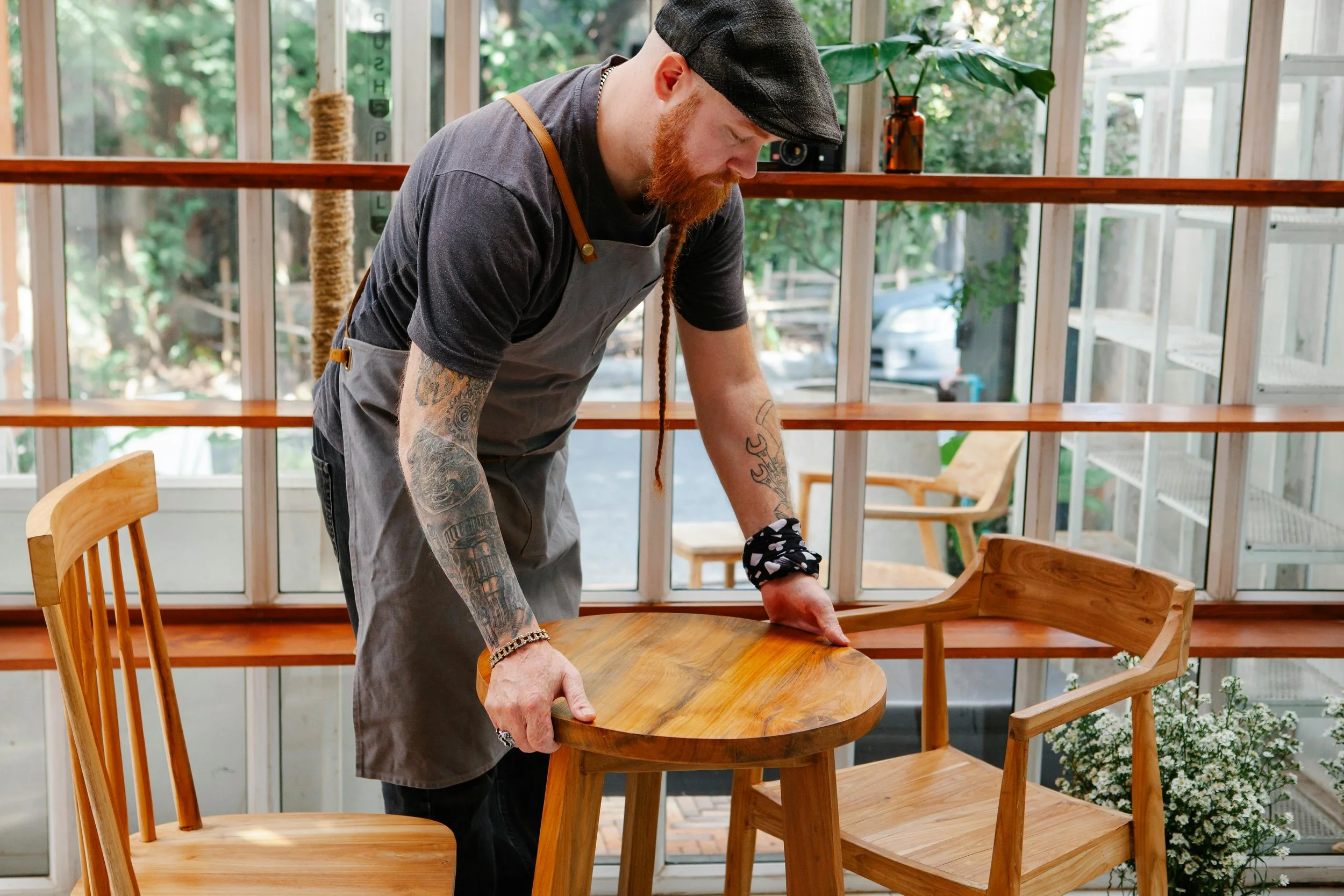Creating a Personalized Wellness Plan for Addiction Recovery
Want to know the secret to successful addiction recovery?
Here's the thing that most people don't realize about beating addiction – it's not about following someone else's blueprint. Every person's journey through addiction is completely different, and cookie-cutter programs just don't cut it anymore.
The truth is…
3 out of 4 people (75%) recover from addiction, but the ones who succeed long-term? They're the ones with personalized wellness plans that actually fit their life.
What you'll discover:
Why Generic Programs Fall Short
The Core Elements of Personalized Recovery
Building Your Custom Wellness Strategy
How to Maintain Long-Term Success
Why Generic Programs Fall Short
Let's be honest about something…
The "one-size-fits-all" approach to addiction recovery is outdated. Think about it – would you expect the same treatment plan to work for a 25-year-old with alcohol addiction and a 45-year-old struggling with prescription opioids? Of course not.
Here's what makes addiction recovery so complex:
Different substances affect people differently – Alcohol withdrawal looks nothing like opioid withdrawal
Underlying causes vary wildly – Some people use substances to cope with trauma, others to manage mental health conditions
Life circumstances matter – A single parent needs different support than a college student
Co-occurring disorders are common – 7.7 million people in America have both mental health and substance use disorders
That's exactly why personalized wellness plans are game-changers for addiction recovery. You can learn more here, about working with a quality addiction recovery center that not only focuses on specific situations but also creates plans that make sense for your life.
The Core Elements of Personalized Recovery
Want to know what goes into a really effective personalized wellness plan? It's more comprehensive than most people think.
Medical Assessment & Detox
First things first – you need to get physically stable. This means:
Safe detoxification tailored to your specific substance and usage patterns
Medical monitoring for withdrawal symptoms and complications
Medication management if you're dealing with co-occurring conditions
Mental Health Evaluation
Here's something crucial that generic programs often miss – addressing the mental health side of addiction. A proper evaluation looks at:
Depression, anxiety, or other mood disorders
Trauma history and PTSD symptoms
Personality disorders that might impact recovery
Cognitive function and learning styles
Therapy & Counseling Options
The beauty of personalized plans? You get therapy that actually works for you:
Individual therapy to dive deep into your triggers and patterns
Group therapy with people who have similar backgrounds or challenges
Family therapy to rebuild important relationships
Specialized therapies like trauma-focused treatment or cognitive behavioral therapy
Lifestyle & Wellness Components
Recovery isn't just about stopping substance use – it's about building a healthier life:
Nutrition planning because addiction wreaks havoc on your body
Exercise programs that fit your physical abilities and interests
Sleep hygiene strategies to restore normal rest patterns
Stress management techniques that work for your personality
Building Your Custom Wellness Strategy
Ready to create a plan that actually works? Here's how successful people approach personalized recovery planning.
Start With an Honest Assessment
You can't build an effective plan without knowing where you stand. This means being brutally honest about:
Your substance use history – What, when, how much, and for how long?
Your triggers and patterns – What situations or emotions lead to use?
Your support system – Who can you count on, and who might sabotage your recovery?
Your goals and motivations – What do you want your life to look like?
Identify Your Non-Negotiables
Every successful recovery plan has certain elements that absolutely cannot be compromised:
Safe, substance-free living environment
Regular check-ins with healthcare providers
Consistent therapy or counseling
Emergency plan for crisis situations
Choose Your Support Team
Here's where personalization really matters. Your support team might include:
Addiction specialists who understand your specific substance
Mental health professionals for co-occurring conditions
Medical doctors for physical health needs
Peer support groups with people who "get it"
Family members who are committed to your recovery
Plan for Real Life
The best wellness plans account for your actual life circumstances:
Work schedules and career considerations
Family responsibilities and childcare needs
Financial limitations and insurance coverage
Transportation and location constraints
How to Maintain Long-Term Success
Creating a personalized wellness plan is one thing – sticking with it is another. Here's how to set yourself up for long-term success.
Build in Flexibility
Life happens, and your plan needs to adapt. Studies show that personalized treatment plans are more effective because they can be adjusted as your needs change.
That might mean:
Switching therapy approaches if your current method isn't working
Adjusting medication as your body and mind heal
Adding new support systems as you grow stronger
Modifying goals based on your progress
Focus on Progress, Not Perfection
Remember that recovery is a process, not a destination. The relapse rate for addiction is 40-60%, but that doesn't mean you're destined to fail. It means you need a plan that accounts for setbacks.
Regular Plan Reviews
Your personalized wellness plan should evolve with you:
Monthly check-ins with your primary therapist or counselor
Quarterly assessments of your overall progress
Annual comprehensive reviews to set new goals
Crisis plan updates as your life circumstances change
Celebrate Small Wins
Recovery is made up of thousands of small victories. Your personalized plan should include:
Milestone celebrations for clean time achievements
Progress tracking so you can see how far you've come
Reward systems that reinforce positive behaviors
Community support to share your successes
The Technology Edge
Here's something exciting – technology is revolutionizing personalized addiction recovery. In 2024, we're seeing incredible advances in:
AI-powered treatment matching that helps identify the best therapies for your specific situation
Wearable devices that monitor stress levels and trigger warning signs
Virtual reality therapy for trauma treatment and craving management
Smartphone apps for daily check-ins and emergency support
Finding the Right Help
The most important part of creating a personalized wellness plan? Finding professionals who truly understand that your recovery is unique to you.
Look for addiction recovery centers that:
Conduct comprehensive assessments before suggesting any treatment
Offer multiple therapy approaches so you can find what works
Include family in the planning process when appropriate
Provide ongoing support beyond initial treatment
Wrapping It All Together
Creating a personalized wellness plan for addiction recovery isn't just smart – it's essential. Only 4.5% of people with substance use disorders received treatment in 2023, but those who did get personalized care had dramatically better outcomes.
Your recovery journey is unique, and your treatment plan should be too. From medical detox to long-term maintenance, every element should be tailored to your specific needs, circumstances, and goals.
The bottom line? Generic programs work for some people, but personalized wellness plans work for most people. When you take the time to create a plan that fits your life, you're not just treating addiction – you're building a foundation for lasting wellness and recovery.
Don't settle for cookie-cutter solutions. Your life deserves a recovery plan that's as unique as you are.





